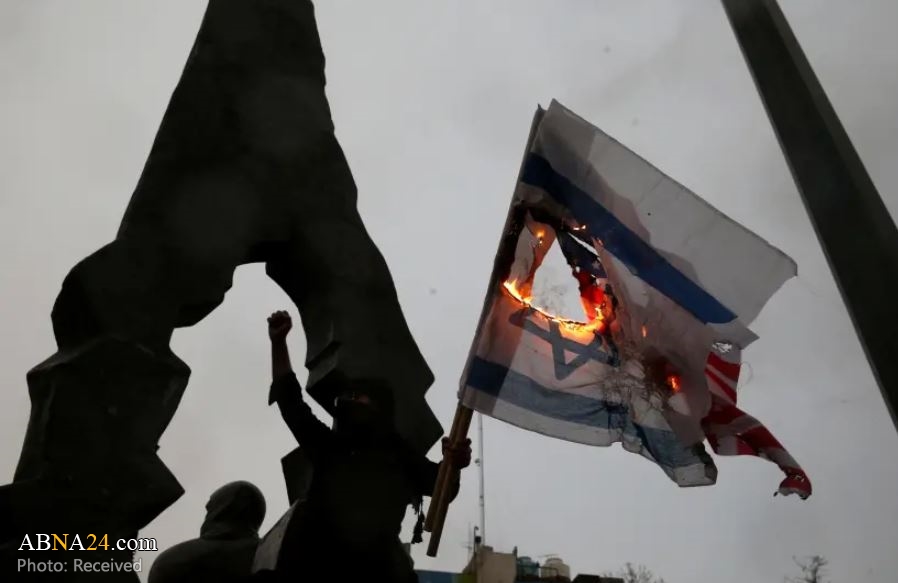AhlulBayt News Agency (ABNA): Making an address at the anniversary of the historical 1978 Qom uprising that concluded in the fall of the Western-backed monarchy in Iran, the country's Supreme Leader Sayyed Ali Khamenei pointed to the plans by the “overbearing powers” to distortion of realities and said that this is one of the main jobs of their intelligence apparatuses.
“They watch world’s developments and then, using their money and also threats, give out their favorable interpretation from the mouth and writings of prominent people in the form of articles and analyses,” the leader said.
Noting that every incident has its special meaning and theme, Ayatollah Khamenei shed light on the massive communication equipment available to the "biased powers and treasonous hands” for change and distortion of the incidents and supplying falsified pictures to the public opinions.
Iran an obstacle to spread of instability virus
One of the clear examples of falsification of the realities, according to the Leader, is the issue of stabilizing and destabilizing factors in the region. Heavy information bombardment, especially of the crisis-hit countries, to cover up from the public the covert and overt US intervention and involvement in destabilization is part of this campaign.
Ayatollah Khamenei pointed to the comments of a prominent American writer Michael Ledeen who in one of his books said: “Stability is an unworthy American mission, and a misleading concept to boot. We do not want stability in Iran, Iraq, Syria, Lebanon, and even Saudi Arabia; we want things to change. The real issue is not whether, but how to destabilize.”
West Asia region has been immersed in instability, war, sectarianism, terrorism, deepening geopolitical and ideological, and religious divisions for years.
One of the main roots behind the mayhem in the region is the existence of the Israeli child-killing and racist regime that is a source of crisis not only to the Palestinians but also to the whole region through its pursuit of a policy of terror, war, occupation, ethno-sectarian division, and interference in the home affairs of the Muslim nations and struggling to break them into parts.
The role of the fake regime of Israel in the region, which is in line with the US interests, has pushed different American administrations, both Democratic and Republican, to compete in their all-out military, diplomatic, and financial support to Tel Aviv. Washington's commitment to protect Israeli regime has been unwavering. Last week the US Congress overwhelmingly approved an annual $3.8 billion aid package to the Israeli regime while the White House and the Congress for months were involved in fighting over stimulus and aid packages to the American citizens to assuage the impacts of the coronavirus crisis.
For decades, the US and its Western allies launched a multi-faceted Palestine desensitization campaign in the Muslim countries to turn it into a low-rate and then forgotten issue. A crucial strategy here is sowing divisions among the Muslim states implemented using ethno-sectarianism, Iranophobia, and media propaganda.
The West and the Israeli regime also build their agenda on soft war, media campaigns, cultural products, and various awards like Noble Peace Prices and even UNESCO educational programs. They present a reversed version of the developments to the Muslim audience and addressees to imply to them that firstly the only way to save the Palestinians is the approval of negotiations with the Israelis and disarmament of the resistant movements and secondly this fake regime is imperishable and that the Muslim countries have to come to terms with the reality of its presence in the region in order for the peace and stability to be resorted. The stances taken by some “treasonous” Arab regimes in normalization with the Israelis were under the effect of this Western campaign.
The Israelis are not alone in playing a destabilizing role in such regional countries as Syria, Iraq, Lebanon, Yemen, and Afghanistan. The Americans have a conspicuous role, too. But the Americans label the policies followed by the Axis of Resistance as the drivers behind the current point of instability in the region, covering up their past and present actions like waging wars in the region, financing and equipping terrorist organizations like ISIS and Al-Qaeda, backing separatist agenda in the regional countries, and setting up military bases against the will of the regional nations.
This false charge is propagated by spending billions of dollars on media propaganda and other communication platforms.
While the regional presence of Iran, as the leader of the Axis of Resistance, is a source of stability and security in Iraq, Syria, Lebanon, Palestine, and Yemen and helps them fight terrorism and protect their national sovereignty against foreign aggression, the US has used terrorism as a tool to serve its goals and agenda in the region and justify its long-term military presence in the region. Even by assassinating anti-terror regional figures, including General Qassem Soleimani of Iran and Abu Mahdi al-Muhandis of Iraq, showed that the Americans need to preserve the ISIS terrorist organization. Moreover, Washington has built pressure on Syria and Lebanon as the key members of the Resistance camp, while it supports the aggressive parties inthe Syria and Yemen wars.
The point is that because in today’s interwoven world the countries cannot remain disconnected from what is happening around them to protect their national security and interests, the Islamic Republic of Iran, which has many sworn enemies, finds it vital to strengthen its regional role and support its allies to save the regional stability and counter the US and Israeli malicious plots while the nation is targeted by blackening media campaigns aimed at painting it as the key problem in the region.
However, amid growing Islamic awakening waves among the regional countries and the development of the public knowledge about the hypocritical and destabilizing role of the US and Israel, the soft war waged by the US and other Western countries against the Axis of Resistance is losing its effectiveness.
/129

